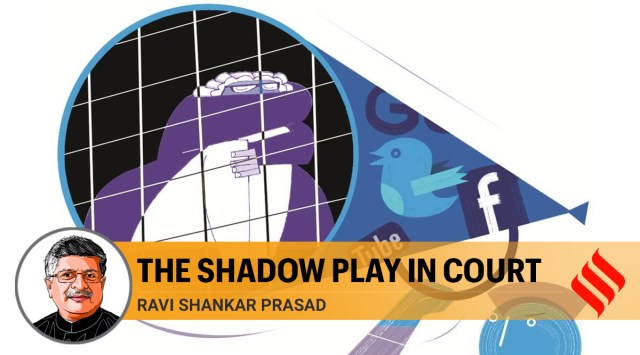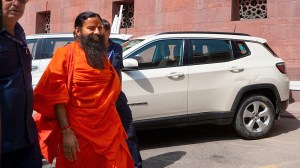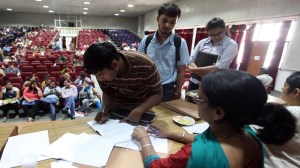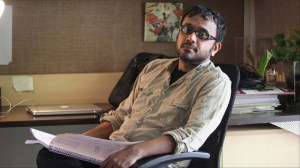- India
- International
Launching vicious campaign against judges in the event of an adverse verdict threatens judiciary’s independence
Ravi Shankar Prasad writes: Those who have been defeated repeatedly by the people of India through a popular mandate cannot and should not control the polity and governance through collusive cases from the corridors of the Supreme Court and other courts. This is unacceptable.
 "We all are committed to the independence of the judiciary, which is integral for our constitutional polity." (Illustration by CR Sasikumar)
"We all are committed to the independence of the judiciary, which is integral for our constitutional polity." (Illustration by CR Sasikumar)His Holiness Kesavananda Bharati passed away a few days ago. He was the head seer of Edneer Mutt in Kasaragod in Kerala. However, the petition filed by him along with others became a landmark in Indian constitutional law, whereby the Supreme Court (SC) laid down the principle of Basic Structure — certain core fundamentals of the Constitution could not be altered by Parliament even while exercising its powers to amend the Constitution. This judgment not only occupies an important position in our legal system but also in our constitutional polity and governance.
Curiously, this judgment led to cataclysmic consequences and a series of developments that compromised the independence of the judiciary. Chief Justice S M Sikri, who headed the bench that delivered the Kesavananda Bharati judgment, retired the next day without his successor being announced as per the norms. The then Congress government had a game plan. Three SC judges — Justices J M Shelat, K S Hegde and A N Grover — were superseded because they had supported the Basic Structure doctrine and the junior judge, Justice A N Ray, who had opposed it, was made the Chief Justice of India. Immediately after, he made a brazen and unsuccessful attempt to undo the Basic Structure judgment by constituting a larger bench. One needs to recall that this first-ever supersession of senior SC judges was hailed by the then ruling establishment led by the Congress and the Left as perfectly justified. Talk of a committed judiciary was very much in the air. Subsequently, one law minister of the Congress government publicly talked about “committed judiciary”.
Opinion: Judiciary should not unwittingly lend its shoulders for somebody else’s gun to rest and fire
I was fortunate to be a young activist in the student movement led by Loknayak Jayaprakash Narayan against corruption and misrule. In the meantime, in the petition challenging the election of Indira Gandhi, the Allahabad High Court set aside her election to the Lok Sabha. Justice Jagmohan Lal Sinha showed great courage though there was widespread speculation in the media about attempts to influence the course of the proceedings. Thereafter, the infamous Emergency was imposed and all leading opposition leaders, including JP, were arrested. The law was amended retrospectively to validate Indira Gandhi’s election and the Supreme Court upheld this amendment.
During the Emergency, a large number of people were arrested, including editors of newspapers. Many high court judges were not confirmed because they decided in favour of the freedom of detenus. In the famous A D M Jabalpur case, which remains a blot on the independence of the judiciary in India, there was one powerful voice of dissent — Justice H R Khanna ruled that even during Emergency, the individual liberty of Indians cannot be curtailed arbitrarily. He showed courage despite knowing the consequences and the then Congress government superseded and denied him the right to become the Chief Justice of India even for a few months despite being the senior-most judge. Justice M H Beg was appointed the CJI.

There were widespread protests against the Emergency and many current and former leaders of NDA governments including the Prime Minister Narendra Modi, Vice President Venkaiah Naidu, Defence Minister Rajnath Singh, late Sushma Swaraj, late Arun Jaitley, myself, present BJP President J P Nadda (who was in college in Patna) had opposed it and suffered. Our fight against the Emergency was basically for three reasons — freedom of individuals, freedom of media and most importantly, the independence of the judiciary. Therefore, whenever a motivated campaign is done about the independence of the judiciary by those whose ideological heritage had celebrated the supersession of judges and justified the atrocities of the Emergency, they must be reminded that the top leadership of this government had fought and suffered for the cause of independence of the judiciary.
In 1980, when Indira Gandhi came back to power, a sitting senior Supreme Court judge wrote her a congratulatory letter on her election victory describing her as a person of “iron will, firm determination, uncanny insight, dynamic vision and great administrative capacity”. The situation of the senior Supreme Court judges under Congress dispensation needs to be recalled today.
Rajiv Gandhi was elected with a massive majority and the path-breaking judgment of the Supreme Court in Shah Bano empowering Muslim women was nullified by a questionable law passed by exercising brute majority, purely for a vote bank. We all need to acknowledge the courage and commitment of the Prime Minister Narendra Modi when in the case of triple talaq, he was firm that this evil practice must be removed by a suitable law for the sake of gender justice and dignity.
We all are committed to the independence of the judiciary, which is integral for our constitutional polity. We are proud of the extraordinary legacy of the Supreme Court and high courts in the pursuit of freedom, empowerment, equity and containment of corruption. I argued some of the leading PILs for some of the worst cases of corruption in the Patna High Court, demanding fair enquiries and many key figures, both political and administrative, were sent to jail. However, these days, there is a new trend of creating a narrative — filing a PIL, unleashing a social media campaign as to what kind of judgment should be given by the court and if the final verdict after extensive arguments is not what one wanted, then a vicious campaign is launched. This attitude of “my way or the highway” is emerging as one of the biggest challenges to the independence of the judiciary in recent times.
Since the government led by Modi has come to power, there have been many instances where the SC has decided against the government. The first major initiative of this government — to set up a National Judicial Appointment Commission replacing the collegium system — was set aside by the Supreme Court, with reasons that are indeed debatable. President’s Rule in Uttarakhand was set aside, asking for a floor test. It was the same in case of Karnataka where the Court sat in the night and directed that a floor test be conducted in one day. A similar intervention was made in the case of the Arunachal Pradesh Assembly. The petition challenging the abrogation of Article 370 is pending before the Constitution bench while the petition challenging the Citizenship Amendment Act is pending before a three-judge bench. Even during COVID19, various judgments have been passed from time to time giving directions to the government. I understand some people have a problem because there is no allegation of corruption nowadays, which had become the norm during the UPA government.
The manner in which a sitting Chief Justice of the Supreme Court was sought to be impeached with the active involvement of senior lawyers close to the Congress reflects the same mindset of trying to overawe the judiciary. When the Chairman of the Rajya Sabha refused to grant sanction, a writ petition was filed in the SC and later withdrawn. This remains the biggest blot on the independence of the judiciary in recent times.
Let one thing be clear: Those who have been defeated repeatedly by the people of India through a popular mandate cannot and should not control the polity and governance through collusive cases from the corridors of the Supreme Court and other courts. This is unacceptable.
This article first appeared in the print edition on September 10 under the title “The shadow play in court.” The writer is Union Minister for Law & Justice, Communications and Electronics and IT.
Opinion: SC’s apparent reluctance to question government on consequential issues affects its moral authority
EXPRESS OPINION
More Explained
Apr 24: Latest News
- 01
- 02
- 03
- 04
- 05









































